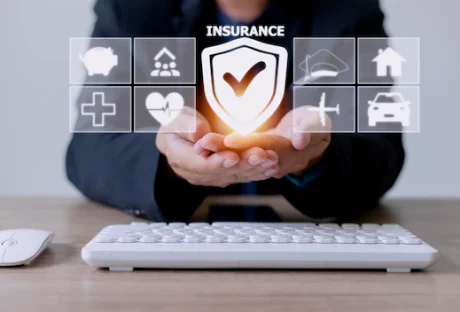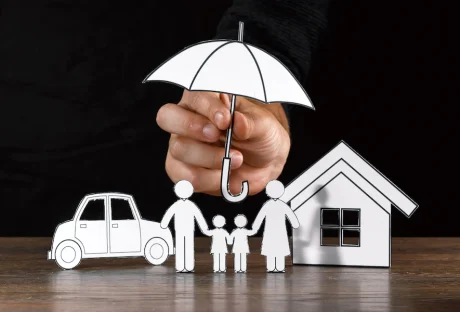Retirement can be a time of mixed emotions. Everyone certainly wants to enjoy their retirement with prosperity and happiness.
According to professionals, 93% of formal workers worldwide have yet to learn about their retirement. Along with that, the health risk also increases as you age and decrease in physical condition.
It is important to remember that happiness is not just a comfortable life after retirement but essential for mental and physical health. Thus, investing in your happiness can be the best thing you can do for yourself in retirement.
One of the biggest challenges is finding a new meaning and purpose in your life. This article will help you discover some important things you can do after you retire.
Things To Do Once You Reach Your Retirement
Retirement is a perfect time to pursue your passion and allows you to explore new interests. Whether it is traveling to your favorite destination or assisting in some care centers, there are endless things that you can do after your retirement.
Here is a list of things you must do after your retirement.
1. Maintain Your Physical And Mental Health
Staying healthy and active is important for your mental and physical well-being right after your retirement.
Doing yoga or exercise is one of the best ways you can stay healthy with your physical abilities. If you practice it regularly, it will assist you in regulating a well-maintained weight, improve your mental health, and minimize the risk of any chronic disease.
You can make a schedule to exercise at least once a day or go for a walk in the nearby park or garden.
Besides meditation or yoga, there are many fun and enjoyable ways to remain active in retirement. You can take a Zumba class, a swimming class, or a local sports team. There are endless options to keep yourself healthy and active in retirement.
2. Diversify Your Income Stream
While you still actively work and make a monthly income, you can consider your spending habits. Thus, you can start with a frugal living so that you can save money and later use it as your retirement fund.
Financial stress is a major source of worry and anxiety in retirement. However, it is important that you manage your finances strategically and plan for the future to remain stress-free.
To ensure a comfortable retirement, you can also contact pension consultants to develop a retirement plan. This will help you meet your goals and meet your needs.
Furthermore, you can further develop and start paying off your debt with the small things.
3. Start Investing In Your Hobby
Think about your favorite hobby or activity that you like to do. Start doing it regularly. Therefore, this will help you maintain good health, specifically your mental health.
Thus, you can enter your retirement phase and continue to do your hobby to remain active, relieve stress, and be productive. In addition, constantly practicing your favorite hobby will keep you away from heart disease, enhance mental well-being, and normalize high blood pressure.
However, learning new things can assist you in staying mentally sharp and engaging with the people around you.
4. Clear All Your Debts
Whether you have planned a retirement plan or not, remember to pay your debts before your retirement.
This would help you fill retirement without any loans or debts.
Hence, you can start paying off your debt from the smallest one. Thus, make sure you avoid getting tempted to add extra loans so that it does not become a burden in retirement.
5. Prepare A Source Of Fund
Start preparing for your fund at your early employment stage. In order to maintain your lifestyle after your retirement, it is important that you plan while you are still working.
Apart from your savings or recurring, you can start with other investments for your retirement and protect yourself from various life risks, such as stock markets, mutual funds, and other schemes that will help you build hefty retirement funds.
All you would require is a well-prepared plan that will make sure you love a wealthy and happy retirement. Hence, in order to reach there, you need sufficient funds for your retirement.
Remember to protect your retirement plan with insurance, which will help you secure your retirement life and protect you from various life risks.
6. Give Back The Community
Helping in charity or volunteering in home care centers is a great way to give back to the community and create a positive surrounding around you.
It can also teach a sense of purpose and meaning in your life in retirement.
There are several ways to volunteer in retirement, from mentoring people in your community to helping in local food banks.
While volunteering can be a great way to meet new people, it also assists in building a respectful relationship within the community.
7. Travel And Explore New Places
Retirement is a perfect time to plan trips and explore places that have been on your bucket list for a very long time.
Whether you are exploring a new country or simply exploring a park, travel can bring a sense of excitement and adventure to your life in retirement.
On the other hand, travel can be a great way to learn new things and make new friends. Whether you are traveling with friends or family, there are endless options to explore the world and create new memories.
Wrapping Up
Thus, sticking to the program will be fine if you are determined to follow the plan. It is only possible to achieve this with active participation and a good advisor’s support.
Therefore, remember that retirement is a chance to look back with happiness on all the great achievements in your career. Similarly, you are being able to draw and enter an exciting new stage of your life.
From drawing up your favorite hobby to diversifying your income streams, you can set up a plan that fits your needs and preferences.
All you need is to remain stress-free. Yoga, meditation, and other relaxation techniques can help manage stress and improve overall well-being.
Hence, start to plan the key decisions and let them play out in their own time.
Read Also:























All Comments
HealthStay
I like the efforts you have put in this, regards for all the great content.
HealthStay
Good post! We will be linking to this particularly great post on our site. Keep up the great writing
Vision Premium
Pretty! This has been a really wonderful post. Many thanks for providing these details.